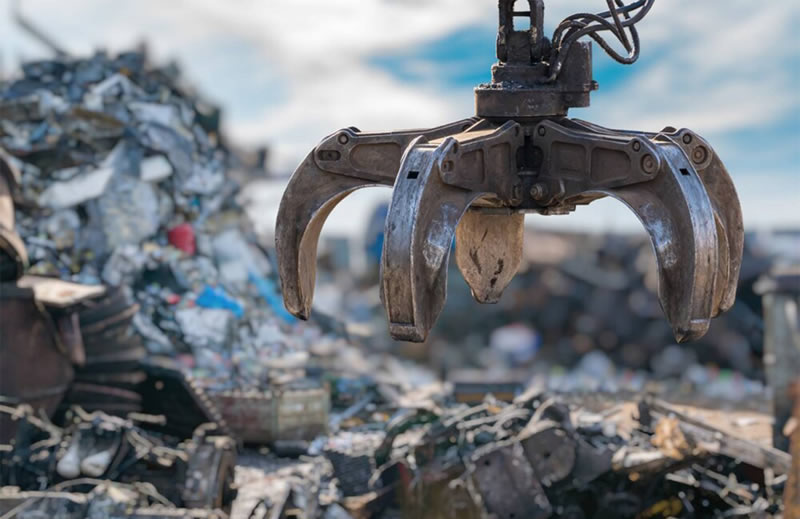

AUG 30, 2024
Modern construction industry trends increasingly prioritize sustainability and waste reduction. One such trend involves using ferrous steel scrap metal in building projects as an innovative construction material. Though usually considered waste material, ferrous steel scrap metal has found new life through scrap metal recycling with various applications within construction — creating more eco-friendly construction while being cost-effective! RCM Recycling discusses how we can make construction more eco-friendly and cost-effective, considering how ferrous steel scrap metal should be utilized.
Metal recycling in Thomaston has long been recognized for its environmental benefits in construction projects. Recycling ferrous steel scrap metal helps lower raw material demand, conserve energy, and minimize production's ecological footprint compared to discarding these resources into landfills. Scrap recycling puts valuable resources back to work again!
Thanks to its strength and durability, recycled ferrous steel has become indispensable in construction applications ranging from structural frameworks to decorative elements. When processed and refined by scrap metal companies, recycled ferrous steel can become high-quality products meeting similar standards to new steel while having a significantly smaller carbon emissions footprint.
One of the primary and innovative uses for ferrous steel scrap metal in contemporary buildings is creating structural components from recycled steel. Scrap metal buyers commonly procure large volumes of scrap steel, which can be melted down and recycled into beams, girders, and other critical building elements that serve as building support structures.
Utilizing recycled steel in structural components lowers costs and supports environmentally responsible construction practices but can also support circular economy principles where materials are continuously reused rather than simply being disposed of after one use.
Scrap ferrous steel has become an aesthetic element in construction projects. Architects and designers are turning recycled steel scrap into artful facades, intricate railings, and even walls with industrial charm—something not previously possible with wood construction materials alone.
Another reason ferrous steel scrap metal has gained in modern construction is its role in environmental certification programs like LEED (Leadership in Energy and Environmental Design). LEED awards points for using recycled material when applying LEED certification criteria—using recycled steel in your project could enhance sustainability credentials while potentially leading to higher certification levels for your building project.
Scrap metal recycling plays a pivotal role in green building projects, ensuring that the steel used meets stringent environmental standards required for green projects. Furthermore, using recycled materials helps minimize overall construction impacts, making sustainability goals more straightforward to attain.
Construction projects always factor cost into their equation, which makes ferrous steel scrap metal an appealing cost-cutting strategy for builders with budgetary restrictions. Scrap buyers typically obtain materials at reduced costs compared to new steel suppliers, and these savings can be passed along directly to builders as savings opportunities. Recycling steel can be an attractive option when cost savings matter most.
Recycled steel offers several distinct advantages over its raw counterparts in terms of price stability and financial predictability, especially as supply remains relatively constant. A scrap metal company offering quality recycled steel may prove invaluable as an ally in helping builders keep costs to a minimum without compromising the durability necessary for construction projects.
As construction transforms, recycled ferrous steel scrap metal usage will likely become more prevalent. Recycling offers numerous environmental and financial benefits and creative design possibilities; recycled steel can be an essential material resource. When working with RCM Recycling, construction professionals can maximize this material's advantages for maximum benefit in construction sites.